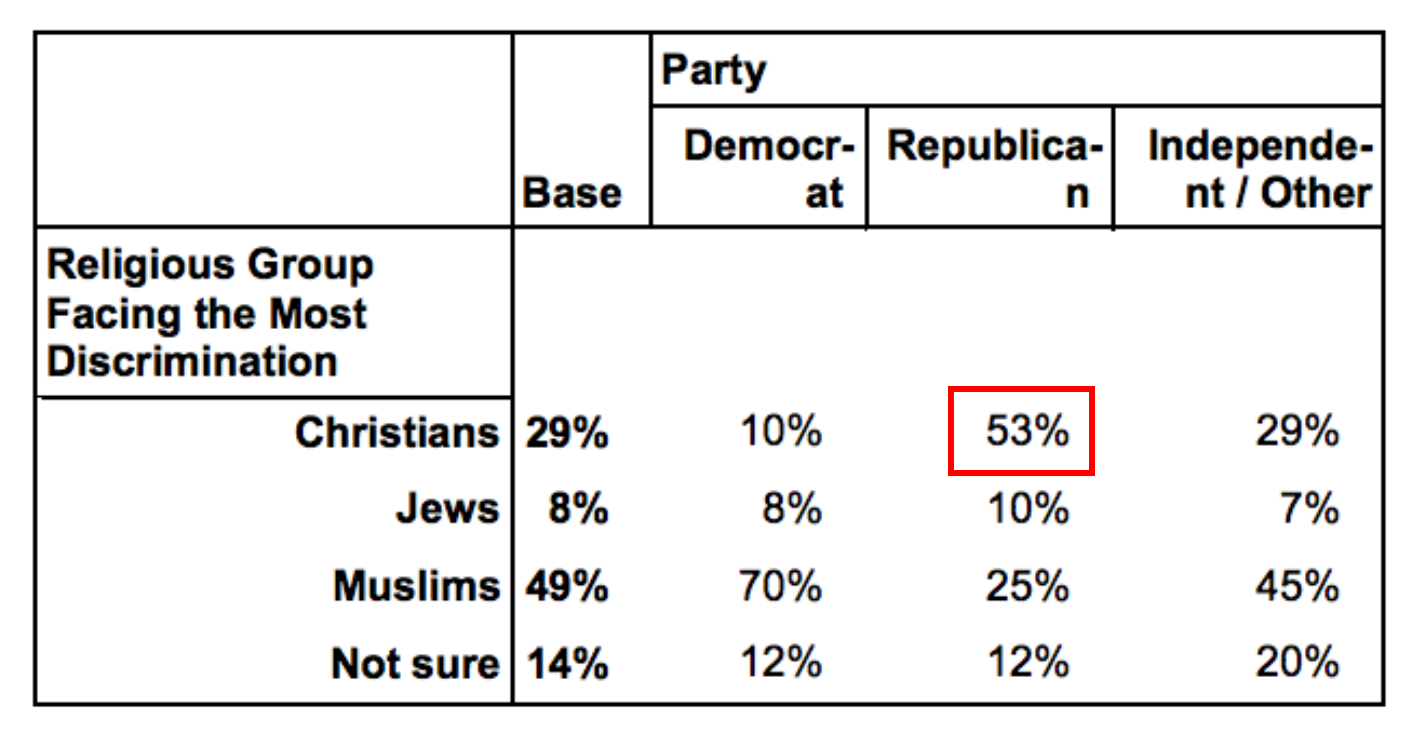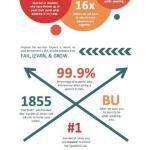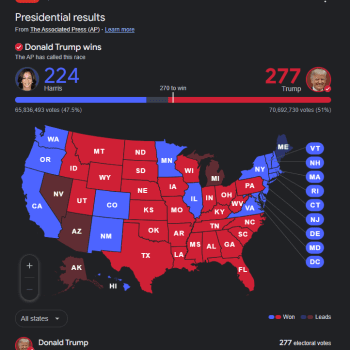There are places in the world in which Christians are indeed persecuted. But the United States is not one of them. And so the results of a recent poll which asked which religious group faces the worst persecution is potentially very telling indeed. If you ask people which religious group faces the most discrimination, you get very different answers depending on their political alignment.
Hemant Mehta kindly turned the results of the poll (which correlates the answer to the question about religious persecution with political party affiliation and the candidate voted for in the last election) into two charts:


I think the other alignments are also fascinating. It looks as though Jill Stein supporters correlate closely with those most concerned about the rise in antisemitism.
I think it is entirely possible that at least some of the Republicans may have answered as they did because they are better informed than others. They might be aware of and thinking of the fact that Christians are the largest religious body globally, and thus statistically will be the most discriminated against if discrimination is spread evenly across the board. But that doesn’t mean that they are singled out for persecution disproportionately – not that the question made clear whether thay was what it was asking about.
Be that as it may, while always wanting to give people the benefit of the doubt when I can, the xenophobia of Trump supporters makes it extremely unlikely, in my opinion, that they were thinking globally when answering the question.
If there is something that I have learned in recent weeks, it is, on the one hand, the need for data to help us see beyond our own narrow horizon of experience; and on the other hand, the need to listen to the stories that people tell in articulating their perception of the world, even if we then need to challenge that perception with data, statistics, numbers, and help them hopefully to see beyond their narrow horizon.
We really do need to both empathize with and challenge those who have this kind of persecution complex. There is a sense in which the topic I am presenting here is similar to the views I face when parents worry about their children going on study abroad to someplace like Israel. Our perception of danger – whether the risk of being killed in a terrorist attack overseas or of dying in a plane crash – is often misaligned in relation to the most risky situations we actually face, often in our hometown or even our own house.
But I would not help parents with those concerns if I simply dismissed them. I need to listen, understand, and empathize – while also seeking to offer information that might help to change their perspective.
And so how do you think we can better get those who perceive themselves to be persecuted, when in fact others face greater opposition than they ever have, to view things differently? Data alone is unlikely to do it. What else should we be offering?













